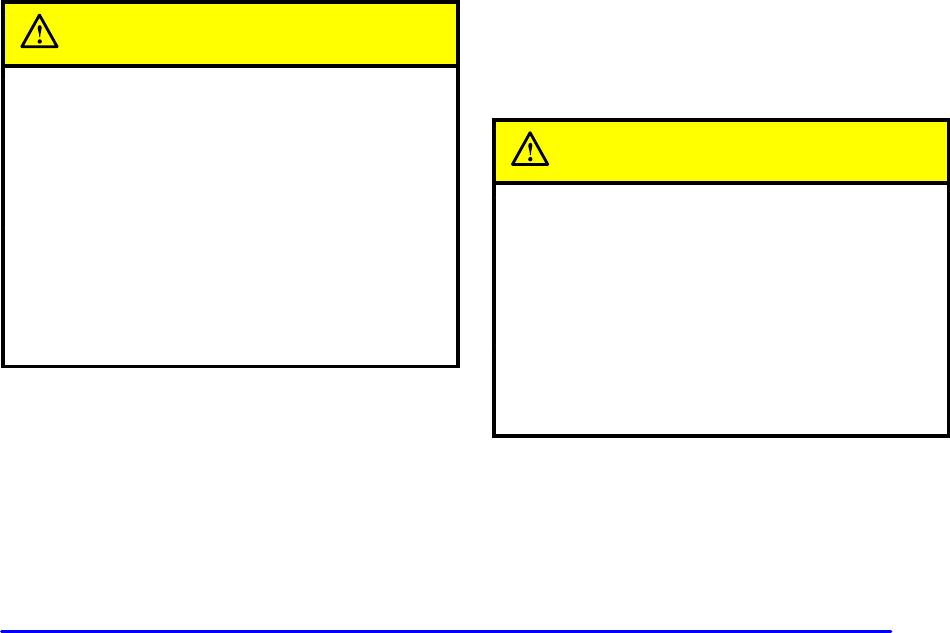
1-51
CAUTION:
A child in a rear-facing child restraint can be
seriously injured or killed if the right front
passenger’s air bag inflates. This is because the
back of the rear
-facing child restraint would be
very close to the inflating air bag. Always secure
a rear
-facing child restraint in a rear seat.
You may secure a forward-facing child restraint
in the right front seat, but before you do, always
move the front passenger seat as far back as it
will go. It’s better to secure the child restraint in
a rear seat.
Wherever you install it, be sure to secure the child
restraint properly.
Keep in mind that an unsecured child restraint can move
around in a collision or sudden stop and injure people in
the vehicle. Be sure to properly secure any child
restraint in your vehicle
-- even when no child is in it.
Where to Put the Restraint (Cargo Vans)
The child restraint must be secured properly in the
passenger seat. Never put a rear
-facing child restraint in
this vehicle. Here’s why:
CAUTION:
A child in a rear-facing child restraint can be
seriously injured or killed if the passenger’s air
bag inflates. This is because the back of the
rear
-facing child restraint would be very close to
the inflating air bag. Do not use a rear
-facing
child restraint in this vehicle.
If a forward-facing child restraint is suitable for
your child, always move the passenger seat as far
back as it will go.
Keep in mind that an unsecured child restraint can move
around in a collision or sudden stop and injure people
in the vehicle. Be sure to properly secure any child
restraint in your vehicle
-- even when no child is in it.


















